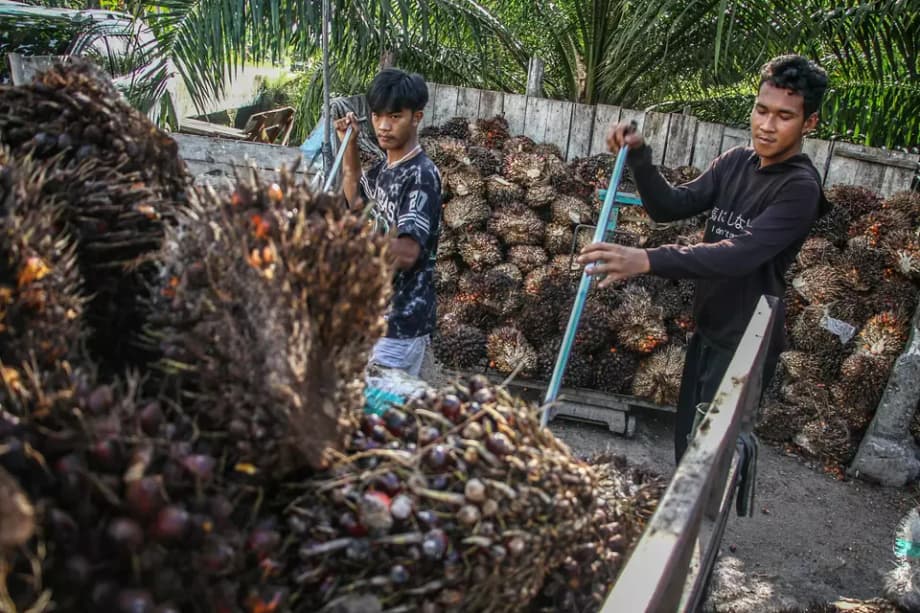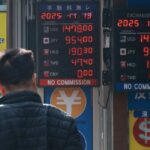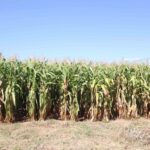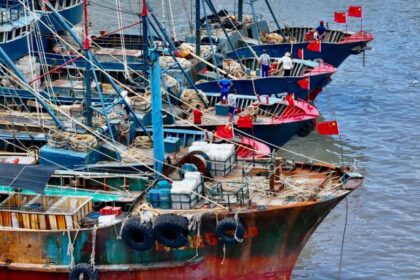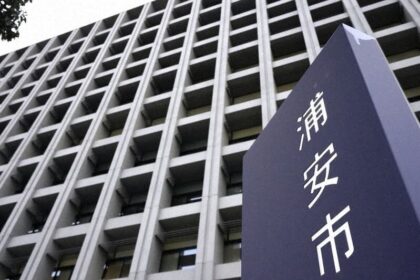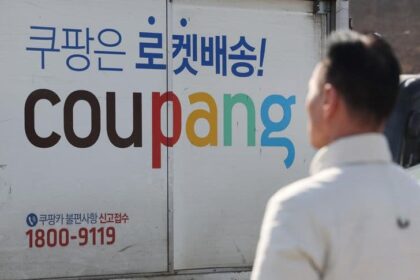A deal within reach, and a rule that could still shut the door
Indonesia and the European Union have concluded the substantive part of their Comprehensive Economic Partnership Agreement. The deal promises tariff cuts that could take effect as early as 2027 once legal reviews and ratification are done. For Indonesia, the worlds largest palm oil producer, this is a chance to ship more refined and raw products into a wealthy market where tariffs have long been a hurdle. The promise of lower duties arrives at the same time as a tougher test. The European Unions new deforestation regulation still threatens to block shipments that cannot meet strict proof of origin and legality.
- A deal within reach, and a rule that could still shut the door
- What the EUDR requires and how compliance will be checked
- Indonesias plan to comply, from certification to field evidence
- Smallholders carry the heaviest burden
- Tariff cuts vs new non tariff barriers
- Regional politics and the push for global standards
- Market outlook, sustainability trends, and what could shift trade flows
- Key Points
The European Union Deforestation Regulation (EUDR) covers palm oil and six other forest related commodities. It requires importers to trace each relevant shipment back to the plot, using precise geolocation and date of planting, and to show that no land was cleared after the 2020 cutoff. Companies must keep detailed due diligence records, map their suppliers, and be ready for audits. Indonesian officials and industry groups say these rules are especially hard for smallholder farmers who lack digital tools, stable land titles, and the training to navigate an unfamiliar compliance regime.
Trade with Europe is already significant. In 2024, Indonesia and the EU exchanged goods worth 30.4 billion dollars, with Jakarta recording a surplus of 4.5 billion dollars. Palm oil remains central. By September 2025, Indonesia produced more than 43 million tons of palm oil, exported at least 25 million tons, and earned 27.3 billion dollars in foreign exchange, while domestic use held near 18.5 million tons. The EU has also published a risk benchmarking that places Indonesia in the standard risk category, a middle tier that requires more checks than low risk but far fewer than high risk.
The timing of enforcement matters. The EU first delayed the start of the law to December 2025 for large and medium companies, with micro and small businesses expected to comply by June 30, 2026. European officials have since signaled another year of flexibility while they finalize complex data systems needed to run the portal that will receive company declarations. That extra time gives Indonesia and buyers room to prepare tracing systems, though it also prolongs uncertainty for exporters who need clarity on how checks will be carried out at ports.
What the EUDR requires and how compliance will be checked
The EUDR aims to reduce global forest loss by stopping the entry of products tied to deforestation or illegality after December 2020. It applies to palm oil, soy, coffee, cocoa, timber, rubber, and cattle. Any product derived from these supplies is also covered. For palm oil, this includes crude and refined oils, oleochemicals, biodiesel, and a long list of food and consumer goods. The burden sits with companies that place products on the EU market. Before shipment, they must file a due diligence statement that includes geolocation for plot level traceability and a risk assessment explaining why their goods are deforestation free and legal under producer country laws.
EU authorities will rely on a three tier benchmarking of countries to decide how many shipments to inspect. Low risk countries face checks on about 1 percent of consignments. Standard risk countries face checks on about 3 percent. High risk countries face checks on about 9 percent. Four countries are currently classed as high risk, Russia, Belarus, North Korea, and Myanmar. Indonesia is in the standard risk tier. The benchmarking does not ban sales from higher risk countries, it sets the intensity of controls and the level of support the EU says it will provide to help compliance.
Differences in definitions and data can complicate implementation. Indonesian and European agencies do not always use the same definition of forest cover, which can lead to discrepancies in maps and land use classifications. Officials in Jakarta have also questioned the practicality of demanding detailed geolocation from producers in tropical regions, while data privacy rules in Europe limit access to personal geolocation data for other sectors. EU officials respond that guidance addresses privacy concerns and that the wording of the law is broad to allow technical updates when needed.
For companies already familiar with voluntary sustainability schemes, the EUDR still presents a step change. Certification alone will not suffice. Auditors appointed by companies cannot replace the official due diligence duty. Declarations must be filed into the EU system and can be verified through document reviews, geospatial analysis, and on site inspections. Non compliance can trigger detention, product removal from the market, and penalties. In practice, buyers will demand full traceability from mills and plantations, and they will restructure sourcing to partners who can deliver clean, well documented supply lines.
Indonesias plan to comply, from certification to field evidence
Industry and government in Indonesia frame the EUDR as both a challenge and an opportunity to improve governance. The Indonesian Sustainable Palm Oil scheme (ISPO) is mandatory for growers and companies and is being strengthened with tighter criteria, public reporting, and new audit rules. The Indonesian Palm Oil Association has called for ISPO to be recognized as a credible pathway for buyers seeking sustainable palm oil. The association also argues that certification should reflect sovereignty over national standards and pride in local good practice, while delivering on environmental and social safeguards.
Jakarta is also investing in technology to meet the traceability test. A new field intelligence platform, Ground Truthed.id, collects geolocation based evidence of land clearing, illegal plantations, logging, and social conflicts. It complements satellite monitoring by enabling communities, civil society groups, and authorities to report what is actually happening on the ground. Data are verified before publication and can be linked to cases so that enforcement follows. The government is building a national dashboard to link maps and supply chain information across commodities. The goal is to align land use data, licensing records, and company disclosures to give buyers consistent, verifiable information.
Senior Indonesian officials also want a streamlined channel for verification with European regulators that protects data sovereignty. One proposal is to set up a Licensing Information Unit that would confirm the origin and sustainability status of shipments while keeping sensitive data stored in Indonesia. Linking such a unit to the EU declaration system could reduce the burden on smallholders and exporters by providing an official way to validate documents and maps without duplicating entry across multiple platforms.
EU representatives in Jakarta say the regulation targets deforestation, not any specific country or commodity. They state that benchmarking is designed to guide inspections and to help direct support, not to trigger blanket bans. The unions stated objective is to help halt deforestation by 2030. That goal aligns with Indonesian commitments under the Paris Agreement, which have driven new protected areas, stronger fire control, and wider use of restoration and agroforestry in recent years.
Smallholders carry the heaviest burden
Smallholders manage a large share of Indonesias palm oil area, around four in ten hectares nationally. Many lack formal land titles, clear farm boundaries, robust internet access, and the funds to pay for survey grade mapping. These realities make geolocation and due diligence difficult, even for farmers who genuinely comply with no deforestation rules. The risk is exclusion from European supply chains if mills and traders decide that aggregation from small farms raises compliance risks they cannot manage at scale.
There are promising fixes. Training programs can raise awareness of what the EUDR requires, from plot mapping to document retention. Affordable geolocation tools, built for offline use and tailored to local needs, can help farmers and cooperatives record boundaries and harvest flows. Traceability apps tested with farmer groups show that adoption grows when tools fit existing practices and when extension workers accompany the rollout. Incentives matter as well. Oil palm farmers respond to clear price signals, access to low cost mapping and certification, and inclusion in credit schemes that reward good practices.
- Build knowledge hubs to explain the EUDR in local languages and deliver hands on training.
- Provide simple, low cost mapping and data entry tools that work offline.
- Use cooperatives and mill buying networks to collect and validate plot coordinates.
- Offer financial support for legal land documentation and certification costs.
- Create fast track channels for verifying recurring transactions between trusted partners.
Indonesian industry leaders argue that the law should not push farmers out. They support the goal of reducing deforestation but warn that a rigid all or nothing design would fragment supply chains and miss the chance to lift compliance across the board. They want a pathway that keeps smallholders included, backed by transitional support from both Jakarta and Brussels.
Tariff cuts vs new non tariff barriers
The trade deal promises broad tariff relief on both sides. For Indonesia, that includes agricultural and industrial products where duties can reach double digits. The catch is that tariff elimination does not override the EUDR. If a shipment fails due diligence, it will not enter the EU regardless of the tariff rate. The interaction between the two files is central to palm oil. Even with lower duties, Indonesian sellers still need clean traceability, complete documentation, and clear proof that no land was cleared after the cutoff.
The benchmarking matters for costs and predictability. Indonesia is currently classed as standard risk. That yields a 3 percent inspection rate in principle, higher than low risk countries where checks are closer to 1 percent, and far lower than high risk countries where checks approach 9 percent. The designation can change over time in either direction. Businesses in Indonesia say a move to low risk would lower compliance costs for small exporters and simplify logistics. For now, sellers are aiming to meet the standard risk obligations while engaging buyers to structure recurring transactions with verified partners.
Palm oil shipments to Europe remain meaningful. Indonesia exported around 3.3 million tons to the EU in 2024 and has set a target near 4 million tons per year once tariffs fall and compliance systems mature. If traceability is robust and documentation becomes routine, mills and refiners will retain access to high value consumers in Europe. If not, volumes will shift to other markets and the tariff advantage will sit idle.
Regional politics and the push for global standards
Indonesia and Malaysia have coordinated through the Council of Palm Oil Producing Countries on joint responses to new import rules. The discussion has widened to include vegetable oil standards across major producers. Indonesian officials propose building a global benchmark through multilateral forums and partnerships, including dialogues with international organizations and platforms where producer countries carry real weight. The idea is to shape standards that reflect tropical realities, protect smallholder livelihoods, and still deliver verifiable no deforestation results.
Diplomatic engagement with the EU continues. Indonesian officials argue that sustainability rules must be universal and non discriminatory across commodities and regions. They point to earlier experiences in the timber sector, where licensing and verification arrangements helped the two sides build trust and improve practices without overwhelming small suppliers. A similar approach for palm oil could include an official verification channel in Jakarta that confirms origin and compliance while keeping sensitive data in country.
European officials counter that the EUDR is designed to be flexible on methods while strict on outcomes. The regulation focuses on the date of forest clearance and legality of production. Benchmarking signals the level of checks, not a presumption of guilt. The union has also delayed enforcement to give companies time to adapt and has published guidance to clarify how to file and assess due diligence statements.
Market outlook, sustainability trends, and what could shift trade flows
Indonesia has already made progress in curbing deforestation linked to palm oil expansion. Over the past decade, a combination of government action, private sector commitments, satellite monitoring, and pressure from global buyers has helped decouple output growth from forest loss. Studies tracking land use show that the area cleared each year for new oil palm during the late 2010s fell to a fraction of the peaks seen earlier in the decade. Recent price spikes did not trigger a fresh surge in clearing, which suggests better land governance and a growing share of expansion on previously cleared land.
There are still risks. Analysts estimate that millions of hectares of intact forest remain inside oil palm concessions. Without strong enforcement and credible monitoring, parts of this stock could be converted under pressure from high commodity prices or local land conflicts. That is why verification from field to port is essential. The new field reporting platforms, satellite alerts, and public dashboards can give mills and traders a clearer view of their suppliers, but they require investment and coordination.
Trade flows will respond to how quickly companies and authorities turn guidance into practice. If Indonesian mills build the systems to collect accurate geolocation from small farms and if records can be tied to licensing and land use maps, then exporters will keep a foothold in the EU and may grow volumes once tariffs fall. If compliance remains patchy, buyers will divert orders to origins that can furnish clean documentation at lower cost. In that case, Indonesian palm oil will continue to find large markets in Asia and the Middle East, but the premium associated with verified no deforestation supply may be harder to capture.
For producers, a credible compliance footprint brings more than market access. It supports better reputational standing, improves access to finance, and reduces the risk of shipment delays or rejections. For the government, strong performance on traceability strengthens diplomatic standing in trade talks and reduces the chance that the union increases inspection levels. For European buyers, a functioning system offers visibility over supply chains and reduces legal risk under the new regulation. Each side has reasons to invest in making the rules workable, from training and tools for smallholders to clear verification channels between regulators.
Key Points
- Indonesia and the EU have wrapped up the substantive part of their trade pact, with tariff cuts possibly starting in 2027.
- The EU deforestation law requires plot level geolocation and proof that no land was cleared after 2020 for palm oil and six other commodities.
- Indonesia is classed as standard risk, which implies about a 3 percent inspection rate, compared with 1 percent for low risk and 9 percent for high risk.
- EU enforcement was pushed to December 2025 for large and medium companies, with small firms expected to comply by June 30, 2026, and further flexibility has been signaled while IT systems are prepared.
- Indonesias palm oil output topped 43 million tons by September 2025, with at least 25 million tons exported and 27.3 billion dollars in foreign exchange earnings.
- Jakarta is strengthening ISPO certification and rolling out tools like a national traceability dashboard and field reporting platforms to support compliance.
- Smallholders face the toughest hurdles in mapping, documentation, and digital reporting, which raises the risk of exclusion without targeted support.
- Tariff relief will not overcome non tariff barriers. Without verifiable due diligence, shipments can still be blocked at EU ports.
- If compliance systems mature, Indonesia aims to raise palm oil exports to the EU from about 3.3 million tons in 2024 toward 4 million tons a year.
- Regional coordination through producer groups and moves toward broader vegetable oil standards reflect a wider effort to balance trade, livelihoods, and forest protection.


